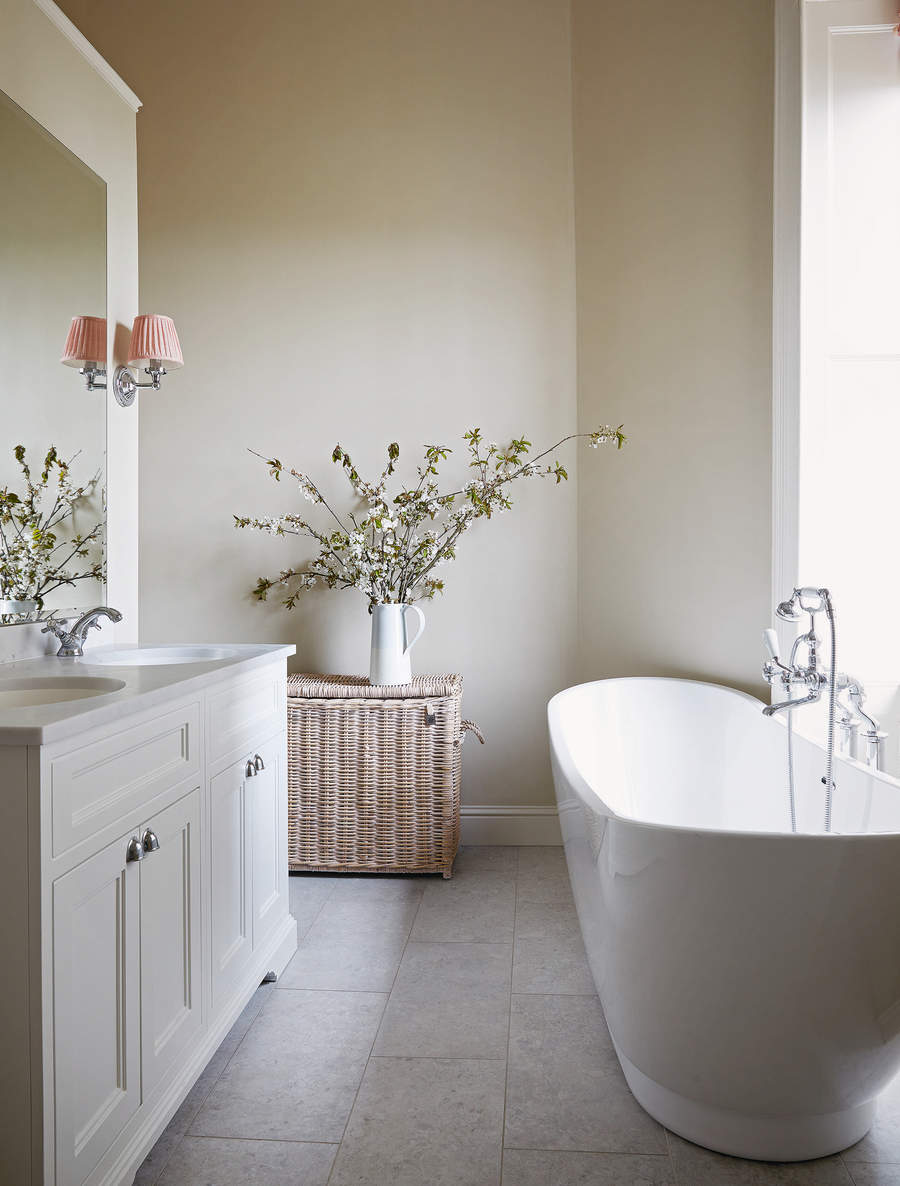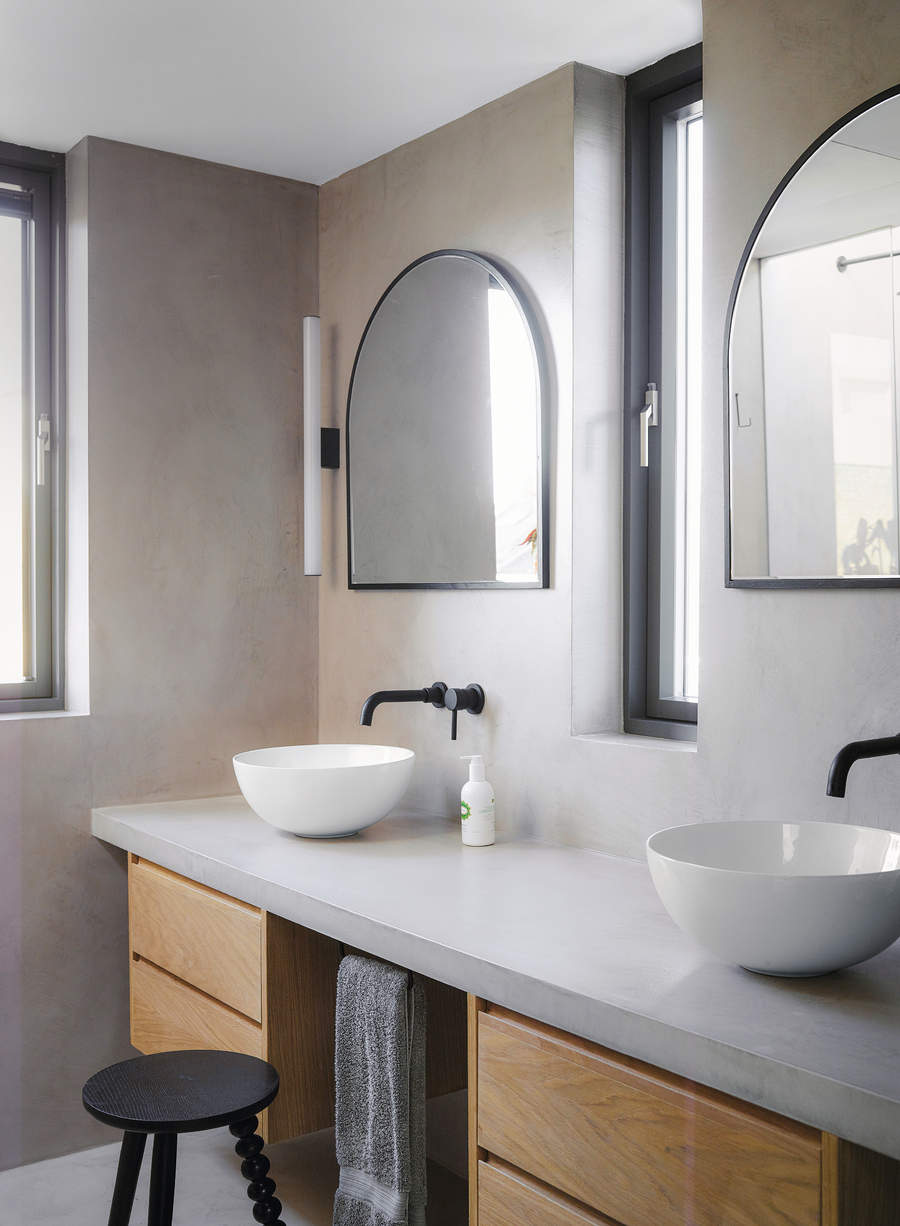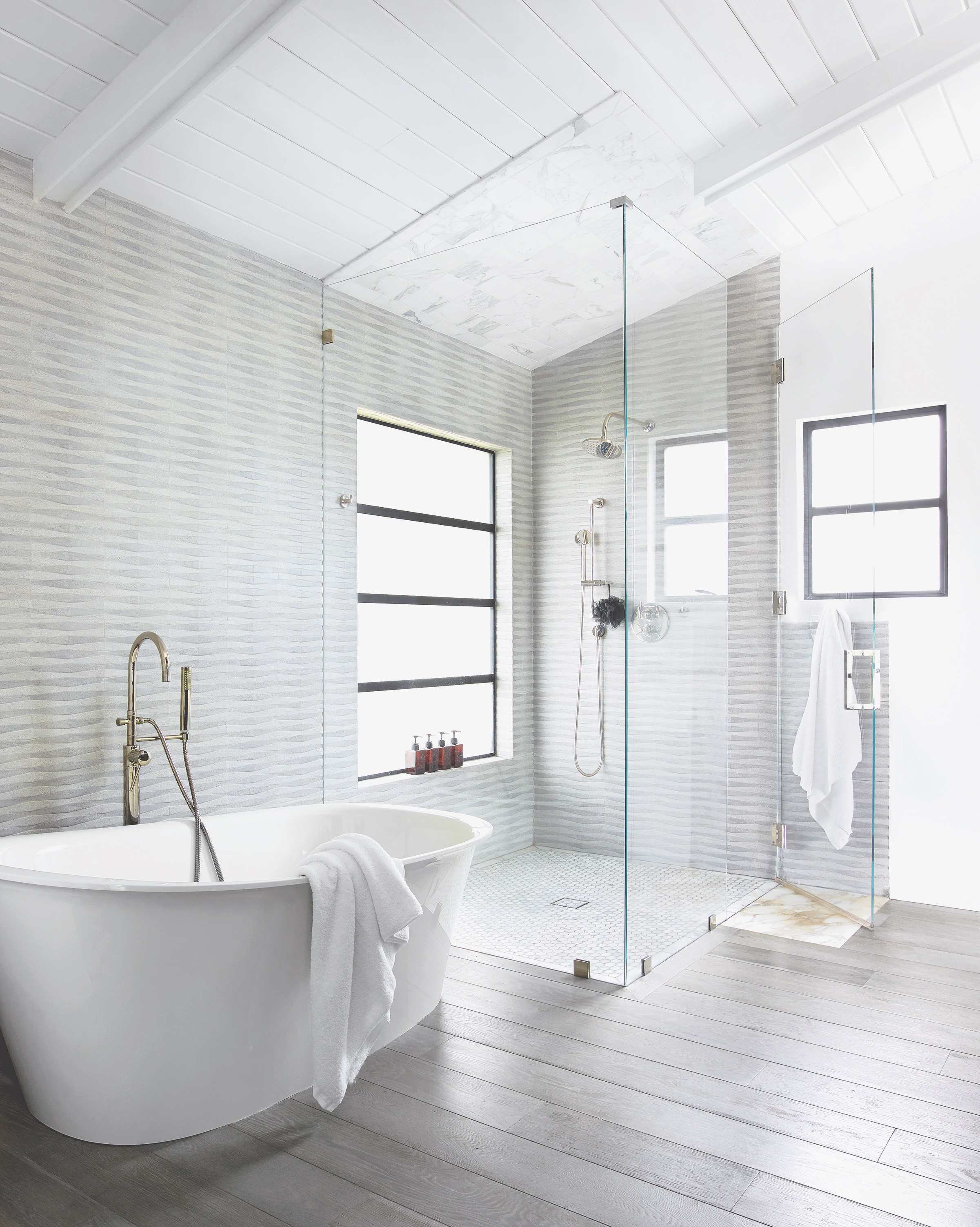Is hard water ruining your plumbing? Here's how to fix it once and for all
Professional plumbers give their advice on how to fix hard water in your home


Hard water can be bad news for a homeowner. The telltale sign of hard water in your home is limescale deposits on your bathroom and kitchen fixtures. These manifest as unsightly stains – which you most likely have spent many hours removing over and over again.
But the problem is much bigger than just the aesthetics: hard water is hard on pipes, corroding and clogging them over time and causing leaks and breakages. Hard water can also mess with your appliances, from washing machines to tea kettles, causing buildup in pumping mechanisms and heating elements.
Hard water can be problematic for people with sensitive skin or skin problems, too. While it’s not been proven to be harmful, hard water can feel drying, which some people say makes existing problems like eczema worse. Some people also dislike the taste of hard water because of its high mineral content, though that’s a matter of preference.
Needless to say, for many people, hard water in their home is undesirable. But how do you fix the problem once and for all?
How to fix hard water in your home
We’ve asked professional plumbers to name the best way to fix hard water in your home – and how much the solution will cost you. We’ll also look into the typical costs of fixing this issue.

How do you know if you have hard water in your home?
You probably already know that you have hard water because of the telltale signs: hard water stains on stainless steel fixtures, glass, and tiles; buildup on your kettle; a dry feel to skin and hair after showering, and, perhaps, a mineral aftertaste to your drinking water.
But to know for certain, you will need a water testing kit. The kit will analyze a water sample from your home for the levels of calcium carbonate in the water. Some test kits also test the pH balance of your water and come with what’s known as the water aggressiveness index. The term ''aggressive water'' refers to water that is soft and acidic; it will corrode your pipes, but due to its pH and not its mineral content.
Design expertise in your inbox – from inspiring decorating ideas and beautiful celebrity homes to practical gardening advice and shopping round-ups.
Tests cost as little as $10 and can be bought on Amazon. The more basic ones only test for calcium, but the more advanced ones also tell you if your water contains copper, iron, lead, chlorine, fluoride, and other problematic deposits.
To determine the hardness of your water, you only need the calcium carbonate test. Levels above 120mg/L are considered hard water and indicate that you need a water softener.

How to fix hard water in your home once and for all
There is only one reliable way to banish hard water from your home: installing a water-softening system. Water softeners are installed at the main water supply to the house - typically in the basement or kitchen.
Jake Romano, professional plumber and Manager at Environmental Plumbing, explains how water softeners work: ‘‘ The water supply feeds into the softener, from which it is treated to "soften" it, then supplied to the fixtures and appliances within your home. A water softener works by filtering the water through salt beads that use ions to attract the minerals from the water and draw it from the water.’’
Whole-house filtration systems involve large tanks and they will cost you. The total cost of installing whole-house water softeners ranges from approximately $500 to $3,000. If you’re very experienced at DIY, especially plumbing, you could try installing one yourself. You will need pipe cutters; these can be bought on Amazon or rented from your local Home Depot or Lowe’s.
This is a job that you want done right, though, so if you’re not completely confident, let a professional do the job for you. Jake Romano strongly recommends getting a professional to do it rather than attempting a DIY installation. He also recommends getting a higher-end unit if you can afford it: ‘I may be biased because of my industry, but I think getting a good unit is the right move.' Note that this doesn't mean getting 'the biggest, fanciest unit' as that can be counterproductive in many circumstances.' Trust what your plumber is advising you to get.
Once you've had the water softening system installed, there will be ongoing maintenance costs, too. These typically include:
- Salt: 'Salt for your water softener isn't too expensive, but it definitely adds up over time', says Jake Romano.
- Resin beads
- Water usage and electricity
- System replacement (eventually)
Don’t worry, though: you won't need to replace anything too often. A good water softening system will last 10-15 years.

Jake Romano is a seasoned entrepreneur in the plumbing industry, currently at the helm of one of Ottawa’s premier plumbing companies. With a knack for growing and developing businesses, Jake combines his passion for the often underappreciated complexities of plumbing with his expertise in management and operational efficiency. Outside of work, he enjoys working out, mastering spreadsheets, and spending time with his beloved basset hound, Baloney.

FAQs
What about under-the-sink filters/shower filters?
You may be tempted to go with a shower filter and/or a filter under your kitchen sink. Both are acceptable solutions for those specific areas, but it’s important to understand that they will still let the hard water run through the rest of your plumbing and appliances.
A shower filter, in Jake’s opinion, will work ‘to some degree, but even good ones can't compete with a water softener, and just allowing hard water to run through your plumbing system is going to damage it.’
John Jordan, President at Integrity Heating and Cooling, says essentially the same thing about under-the-sink filters: ‘Installing just one filter under the sink will provide you with soft water for drinking and cooking but won’t protect your house appliances from hard water damage. If you are looking for a more comprehensive approach, installing an under-sink filter is not a solution.’

John Jordan, President of Integrity Heating & Cooling Inc., is dedicated to making his HVAC service company the best in Illinois. For over 25 years, his company has been the trusted choice in Chicagoland for safe and comfortable homes under John's leadership.
Do I really need to fix hard water in my home?
Some people might wonder if they really want the hassle and expense of installing a whole-house water filter. Isn’t hard water just a fact of life in some areas?
The truth is that while many people do live with hard water, this comes at a significant cost. In the worst cases and in areas with extremely hard water, you could be looking at having to replace all of the pipework in a house, which can run into tens of thousands. That’s because you often have problems with pipes that run behind walls and in pipe joints that need to be replaced.
Do you have a water heater or boiler? Here’s a nasty surprise for you: very hard water can ruin this appliance within as little as two years. Again, this will be a costly replacement.
The damage usually will be less catastrophic to appliances like washing machines and dishwashers because you can replace the affected parts. Still, it’s an unnecessary expense - and an extra effort on your part, or a plumber call-out.
These expenses can add up over time and will far outweigh the cost of installing a hard water filter.
What if I rent? Can I still have a whole-house water softening system installed?
If you rent, you would need to get your landlord to have a water filter installed. You would need to convince them it was worth their while to make the investment. If you’re renting somewhere long-term and think the water is very hard, get it tested, and then present your case to your landlord (in writing). Explain how hard water will damage the pipes and appliances the landlord is responsible for replacing.
While this doesn’t guarantee that your landlord will agree to have a water softener installed, they may well agree.
Another common plumbing issue faced by US households is low water pressure. Thankfully, unlike hard water issues, it is simple enough to learn how to identify and fix low water pressure on a DIY basis.

Anna is a professional writer and academic. She taught English Literature for several years before joining Future where she wrote for Real Homes, Homes & Gardens and Livingetc for four years. She is a regular contributor for Parade Home, BiggerPockets, and many other publications. In her spare time, Anna enjoys hiking and gardening.